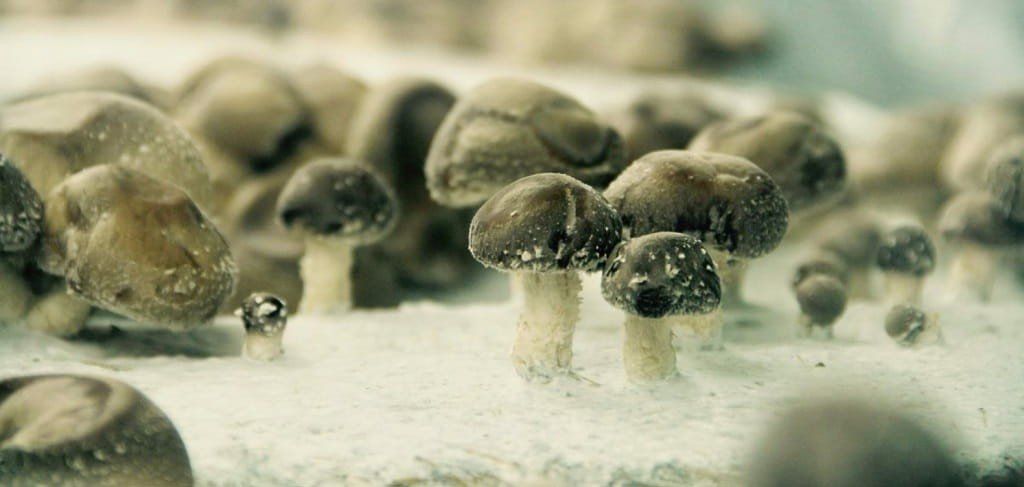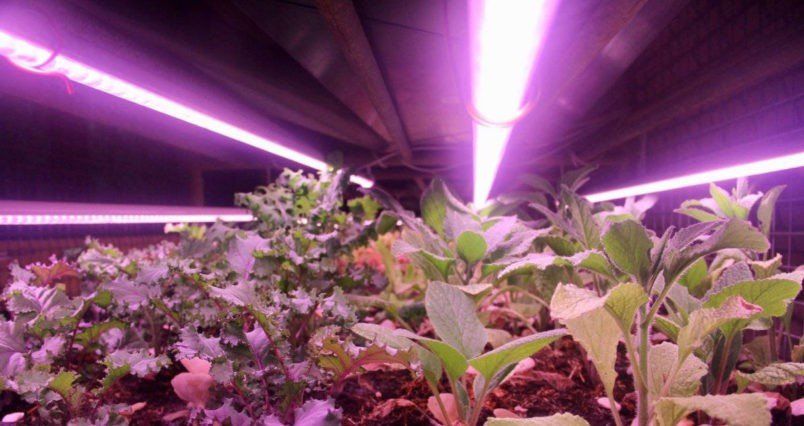Hidden Growing in Paris
La Caverne produce delicacies in a disused car park....
We recently reported that London and New York both have underground hydroponic farms that produce delicacies and we now find that there is a similar operatinon in Paris right now....
In a previously abandoned car park beneath a residential complex lays La Caverne underground farm who specialise in growing healthy food.
As well as the mushrooms, La Caverne also produce fresh organic herbs and vegetables to the food outlets in the area.
In La Caverne's own words about the car park, they 'decided to recycle it into an urban farm!' and their slogan states that they are 'the only organic farm of Paris"
The products that La Caverne grow range from the popular to the slightly more obscure. One of the more commonplace items is the famous Button mushroom that is good for protein and rich in copper, potassium, selenium and vitamin B.
Among the less commonly known is the Shiitake. A cap mushroom of Japanese origin it has similar nutritional properties to the button and a slightly different taste.
Also grown are the Oyster mushrooms, the Microgreen and the slightly mysterious Endive.
More details can be seen here on La Caverne's website
Here is the Q&A section from La Caverne's website, which is such a pleasure to read we have copied and pasted it in full to share here!
Your vision in one word?
Being part of the renewal of the tomorrow’s cities by transforming unused urban space to produce amazing vegetables!
What are your objectives?
They are numerous. We want to promote a new model of urban agriculture: at the same productive and virtuous. We also aim at creating new ways of producing, at restoring the profession of farmer, often poorly understood, at creating local jobs nonrelocatable, and eventually offer to the urban citizens a local and tasty production.
How do you define your production method?
We are using the “ underground market gardening ”. The idea is to cultivate, within the same space, different species of vegetables that interact in a positive way. For instance: the CO2 generated by the mushrooms is used by the microgreens to grow up, the natural materials are composted for our cultivations… Those methods are widely inspired by permaculture!
Isn’t it more expensive to produce in the city?
Actually it is the opposite: we work without any intermediary so that we can offer you better products at the best price.
What about the light?
As you have noticed: no sunlight beneath the ground… It is not a problem for us: we opted for cultivations adapted to our underground environment. Mushrooms do not require a lot of light to grow and chicory grows without any light: our energy consumption is actually rather low! For the vegetables which need light (salads, microgreens, aromatic herbs…) we use LED lamps.
What is a LED and why do you use it?
LED ( Light-Emitting Diode ) consume less energy than usual lamps and produce also less heat: we can adjust the light spectrum for an optimized development.
What is the productivity?
It depends of the cultivation. It may vary from 2kg/m2/month for the aromatic herbs, up to 300kg/m2/month for the endives. We have developed our cultivation system by drawing inspiration from the vertical farms.
To whom do you sell your production?
The core of our approach lies in our relationship with the customer. We want to recreate the lost link between farmers and customers, and to participate in the renewal of local food networks. We sell directly to individuals as well as to restaurants and little groceries.
How do you handle transportation of your products?
Our goal is a transport 100% without CO2 emissions. Either by electric bikes either by any kind of electric engine but those one are very expensive: we are currently seeking for a way to finance it.
What is the quality of your products?
They are the freshest and the most local in the city. We harvest the vegetables on the very morning we deliver it to you: hard to do better for the freshness!
Are the products wholesome?
The first harvests, tested in laboratory, present absolutely no trace of harmful particles for human. So our products are not only tasty but also super healthy.
Do you use pesticides? Synthetic fertilizer? GMO?
No, no and… No! None of those things is used in our farm. Our production is even certified organic for the majority of our cultivations.
How did you found the site?
We had the privilege to be allowed to transform this place after winning a call for proposals led by the Paris’s city council “les Parisculteurs”. We have been laureate in November 2016.
To whom belongs the place?
It is the property of ICF Habitat La Sablière , a social lessor very involved in the north of Paris. It supported us during the all process of the project. We are just unusual tenants…
What are the characteristics of this place?
The place that was given to us is a former underground parking, abandoned for years. The level on which we are stretches over more than 3500 m 2.
An underground parking? Isn’t it polluted?
No risk! Air and surface analysis have been conduct by the city council and the lessor. It was compulsory before dedicated it to agriculture. Vehicles no longer go in our parking since years and we only use electric engine for the cultivations. What’s more, we are in a closed space so we are able to control air quality.
Do you recycle your waste?
Of course, as any good farmer we know that compost is an excellent fertilizer. Our organic wastes are recycled on site with vermiculture methods.
Vermiculture?
It is a composting technique which is accelerated thanks to little worms. Those guys are our allies: they help us degrade the waste faster in order to produce a natural and rich fertilizer.
You consume a lot of energy right?
LED cultivations represent only 10% of our production. *** requires a very low amount of energy to grow because we opted for adapted species like mushrooms and endives. To put the lid on it: our energy is 100% renewable thanks to our partnership with Enercoop.
What about the social aspect of the project?
Good question Jack! Our farm is located beneath a building with more than 300 social housing. We aim at providing them with our products at a preferential tariff, at making educational workshops and we also want to hire local people. Don’t forget that we are located at Porte de La Chapelle, a “priority” neighborhood: we want to participate in the renewal of this area.
How many employees do you have?
We are currently 10 people working on site and we intend to hire 5 more.
How do you recruit?
We made a commitment with the less or: we hire in priority local people. However we are looking for urban farmer not only in Paris. We believe in what we do this is why we are developing our activity: in other French cities and soon in Europe!
What is it to be an urban farmer?
Being a farmer is job complex and varied, this is why we like it. Each one of us as an appropriate formation for its core responsibilities but we are against iterative and monotonous jobs. This why we all participate in the different tasks: planning, harvesting, cultivating, delivery, marketing…
Is it your first try?
No, our first site “Le Bunker Comestible” is located in an old gunpowder magazine in Strasbourg. It was perfect to try and improve our cultivation systems. It produced its first harvests in April 2017; two urban farmers are managing it autonomously.
Where does this idea come from?
It is nowadays a widespread idea that agriculture took a wrong path during the past century. Massive use of pesticides and fertilizers, production travels through entire continents, agribusiness scandals,… We really want to shake things up and cities are full of unused space: bingo!
Who is at the initiative of this project?
We are two and we met… directly on the site of La Caverne during the visits of “Les Parisculteurs”. In the beginning it is only 2 people: Jean-Noël Gertz, heat engineer and founder of Le Bunker Comestible in Strasbourg, and Théophile Champagnat, agronomist and nomadic cook. But our enterprise won’t work that well without our skilful team.




